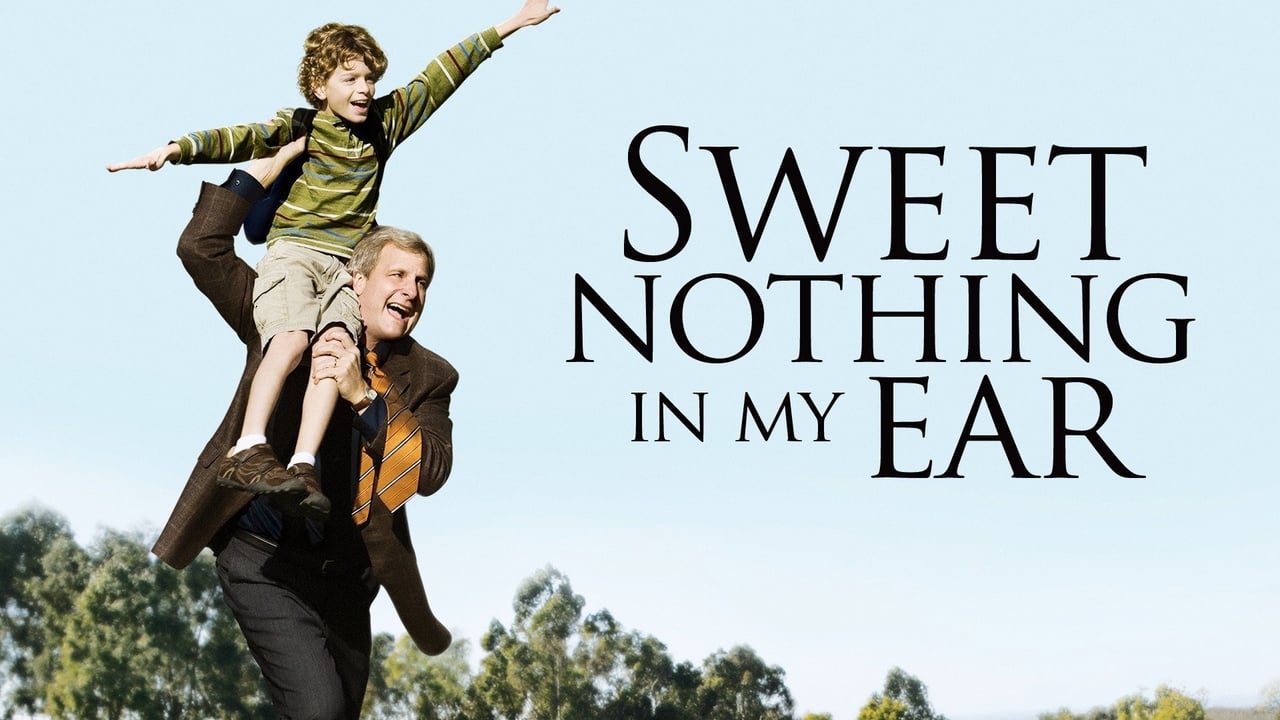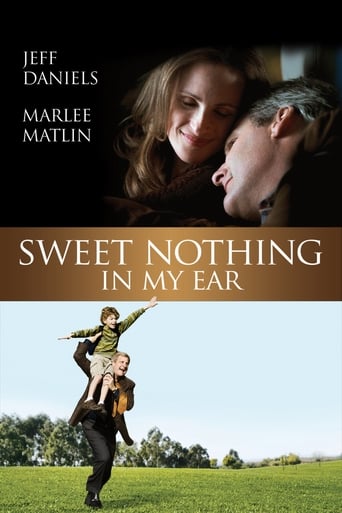


An important look at the world of deafness that is seldom seen on television is the work of Stephen Sachs, whose play he adapted for the small screen, and directed by Joseph Sargent. The creators take us to a situation not often seen on television.This is a small project by all accounts, yet it takes the viewers behind the reality of people that face a hardship most of us don't know anything about, and even discrimination from ignorance. In the case of the Millers, what seems to be a happily adjusted family, the wife, Laura and the young son, Adam, live in a world where sound, as one knows it, is absent.When young Adam is taken to a hospital to be treated from a nasty fall, the intern that takes care of the wound, suggests a cochlear procedure so the boy can hear. Dan, the father, begins to ponder on the benefits Adam would receive, but the mere thought of it triggers a confrontation with Laura, who is reluctant to have her young son submitted to an operation with what she thinks is a risk she wouldn't like to take.That episode is what triggers a war between Dan and Laura, who decide to separate and get involved in a custody battle. At stake is what Laura perceives the loss of a culture for Adam. After all, she has lived a somewhat happy life in an loving environment with Dan. Her parents, who are deaf as well, never reveal a family secret that involves her.This movie is a bit different from what is shown in some family oriented channels. The casting of Jeff Daniels as Dan Miller, was a stroke of luck for the people involved in the film. Mr. Daniels is a natural who is good in anything he plays. Marlee Matlin, a deaf-mute actress is appealing as Laura. The supporting cast adds another dimension to the story.This is a film that goes where others don't dare to go.
... View MoreI found the following comment on a popular deaf message board run by Amy Cohen, "Deaf World As Eye See It, Bittersweet History of Sweet Nothing In My Ear" and couldn't agree more:"The choice to voice-over the signing in the Hallmark Production reminded me of old Disney movies in which you would hear the interior monologue of what the pet dog was thinking. Really, what a poor choice on so many levels. Aside from the insult to the Deaf Community, it just didn't work dramatically at all. It was laughable and it made deaf people feel like lesser people. Wow."What a shame. 20 years ago CBS, the same network, subtitled an episode of "Beauty and the Beast" which starred Terrylene, a deaf actress, along with nine other deaf actors. It worked wonderfully and received a lot of attention and respect for doing so. How far have we regressed since then? How did the deaf who were involved in this production allow this to happen?The whole point of the movie is lost when the remarkable beauty of sign language, which arises out of its SILENT- VISUALITY is shamefully undercut by SOUND-VOICES and camera frames that chop off the hands. How much longer will the ignorance continue?
... View MoreFabulous film dealing with the problems of the deaf.A family is almost destroyed by the conflicting parents of a deaf child. The father, who can hear, wants his son to have a cochlear implant and the mother, who is deaf, is against this.Jeff Daniels is absolutely fantastic as the father. I have followed his career and am always amazed that this fine actor has been relegated to such miserable parts and films since playing Shirley MacLaine's ill-fated son-in-law in the memorable "Terms of Endearment."Marlee Matlin is a terrific actress and she is in fine form as the mother.We learn that deaf people have a culture of their own and we see how other children can be cruel to a deaf child.Many of our deaf people wish to cling to this culture that they feel will be threatened by these implants.This is definitely a mesmerizing film which is not to be missed.
... View More"Sweet nothing in my ear" is the story (told in retrospect) about a hearing man, his deaf wife and his deaf son and the controversial debate over what is normal and acceptable for all involved.To tell you the truth, I had not planned to watch this film. Just as a fluke the channel ended up on Hallmark when the program began and as it progressed I was compelled and drawn into the story of hearing and deafness and family and differences and likeness.I was impressed and appreciative of the way it was handled... with voices being heard for those signing instead of "speaking" as they sign- true to life.The story was freshly told in a way that allowed the viewer to see all sides of the issue of hearing versus deafness. I also frankly was mesmerized by how those who are deaf can be included and participate in so many experiences that I hadn't realized they could be included in such as going to the movies. The whole telephone set/video was so "Jetson's like" and the trivia of all of those in history who accomplished great and every-day things who were deaf.At the same time allowing to see the side of the hearing father who mostly was immersed in the deaf world (i.e. his wife, son, in-laws...) and how it excluded him at times.Truly, I think that if you enjoy family drama- you will enjoy this movie. If you enjoy Hallmark movies as a rule- you will enjoy this movie. If you enjoy films with emotional conflict and human struggle- you will enjoy this movie."Sweet nothing in my ear" is a great movie. I gave it a 9 because it not only dealt with such an issue we don't always get to see from every side and did it in a way that all sides can enjoy and appreciate.
... View More